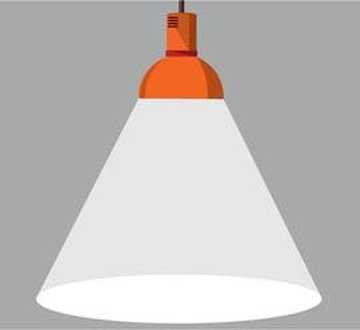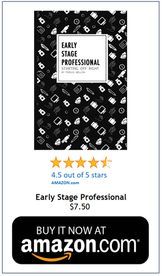- Closing the Deal -
interview questions
by fergus mellon

Easy Questions
Why do you want this job? This should be simple. Have a real answer for why you want this job. You may have done an internship for a similar role, you may have majored in it or it could be life-long ambition which is why you took a degree in a relevant field. Regardless know why you want the job you have applied for! Why do you want to work for this company? Again, this should be very simple IF you have done your research on the job you should also know why the company is one you want to work in. How does this company meet your goals for your career and the area you have applied for? What is the company doing that interests you? Have you spoken to past or present employees about the company and discovered if it is a place you want to work? Have a clear reason for why you want the job. Why did you decide to study XYZ degree at the University of ABC? This is a doozy. Make sure you know why you spent a lot of your time and money on the courses you took at the institution you decided to attend. What are your strengths? Think of three in the event you are asked for more than one. Strengths should be around your work ethic, your technical skills that make you a fit for the job, your inter-personal skills, your positive attitude and many other strengths that are personal to you. The important thing to note is that you should relate your strengths to those that will make you successful in the job you have applied for (hint: take a look at the job description and ensure that your strengths match those that are required for the job!). Less Easy Questions What are your weaknesses? We all have them! Do not say that you either work too hard or care about human beings too much. When Presidential Candidates give these silly answers (see here for an example of a “weak weakness” by the politicians!) you know they are faking. Do not be a faker! Instead think about where you are really weak? Do you have to work to be better at detail? Are you more quant than not? Are you not quant enough? We are all human (aka imperfect) and so are not great at everything. Think of weaknesses that are not truly going to write you off for a job. If you are not all that outgoing then saying that for a Sales job would be dumb. If however you say that you are not very outgoing for an analyst job then that is likely ok. What is your ideal day? Keep it professional and relevant to the job you are applying for! What type of person complements you? This question is not asking what nice things people say about you. This question is a subtle way of getting at your weaknesses and asking if you were to be on the team who would you choose to complement your skill set. What concerns do you have for this job? Be honest and don't say that you have zero doubts as you will look like a weak candidate. You could ask about career progression or what the culture is like and you could also frame it as not so much having "concerns" but more questions on the company. What haven't I asked you that I should have done? I love asking this question to candidates as it is difficult! That said there are some great answers to this one! I asked one Early Stage Professional who was applying for a designer position and she came back with "you haven't reviewed my portfolio and I would love to show you the quality of my work". This was a great response (and what I was looking for!) and the review of her portfolio not only showed me that she was a very gifted designer but also someone with great presentation skills. She got the job! You interned at XYZ Company, why didn't they offer you a full time job? Do not dread this question. Be honest in your response. It may be that there were no full time jobs or that only half the interns got the jobs or even that you did not want to work at the company you interned at. All of these answers (and any that are truthful and not going to show that you were a dud intern!) are fine. When I am interviewing candidates, I really do not expect candidates to turn every internship into a full time position so just be prepared to respond in an open fashion. Where do you want to be in [insert number] years time? I hate this question, but it does not mean it is not a good one to ask an Early Stage Professional! The reason why I hate it is that it is really hard to give a smart answer as someone new to the world of work. Do you say you want to be a CEO in 5 years or someone who is on track for great things? It's a hard one particularly early on in your career. The reason why I think it is a good one to ask an Early Stage Professional is that it can highlight if someone is going to be unrealistic about their career and so be difficult to manage. Are they going to ask for a promotion every 6 or 12 months? If so, I probably don't want them to be in my team as their goals are unrealistic! Therefore in answering this question, focus on setting out realistic career goals for the next 5 years time. It is likely that for the first two years of your career you will be focused on really understanding your role and building your professional skills with the goal of being positioned for promotion. If you see yourself as someone who wants to manage a team, then say that that is a longer term goal of yours, but not something that you expect in the early years. Be realistic and honest! The Trickier Ones What's important to you? This is my absolute favorite question to ask a candidate as it is really undefined and shows how a candidate deals with an awkward situation! The truth to answering this question is that there is no right or wrong answer. I like to hear if a candidate says that the most important thing to them in the world is their family. This shows a great quality in another human being, right? Similarly if a candidate answers this in a very work-oriented fashion then this is also great. The only bad response is "what do you mean?" I never clarify but repeat the question. Just be honest and professional! What is your spirit animal? This is more of a fun question, but gets at not whether you think you are a Dolphin, Dog or even Red Panda (yes, I have had someone say that!) but instead the why. The responses highlight the type of personality that the responder has and is another good way of getting to strengths and overall personality. How many people are playing tennis in the US or UK right now? This is a case study question and is designed to get at your problem solving skills. The answer does not matter so much as how you go about answering the question and breaking down your assumptions in getting to an answer. Don't be thrown by these "weird ones" just enjoy the fact that someone is interested enough in your thought process to pose it and do your best to answer it. Much has been written on this topic which is why I was so brief in this section; there's no need to re-invent the wheel! Here are some links to good sites on Interview Questions: General Interview Questions The Muse: How to Answer the 31 Most Common Interview Questions Behavioral Questions: USA Today: 30 behavioral interview questions you should be ready to answer Case Study: McKinsey Consulting Site: Interview Prep Next section: Questions You Should Ask at Interview or go back to The Interview overview ==== Visiting these pages because you've to a number of interviews and not yet got a job? Don't worry. Or if you're worrying know that it's common for a job search to take months and not days. Here are some related columns on keeping motivated and dealing with the stress: Keeping Positive During Your Job Search Dealing With Rejection and Feedback Overwhelmed? Try a Mental Refresh
|


